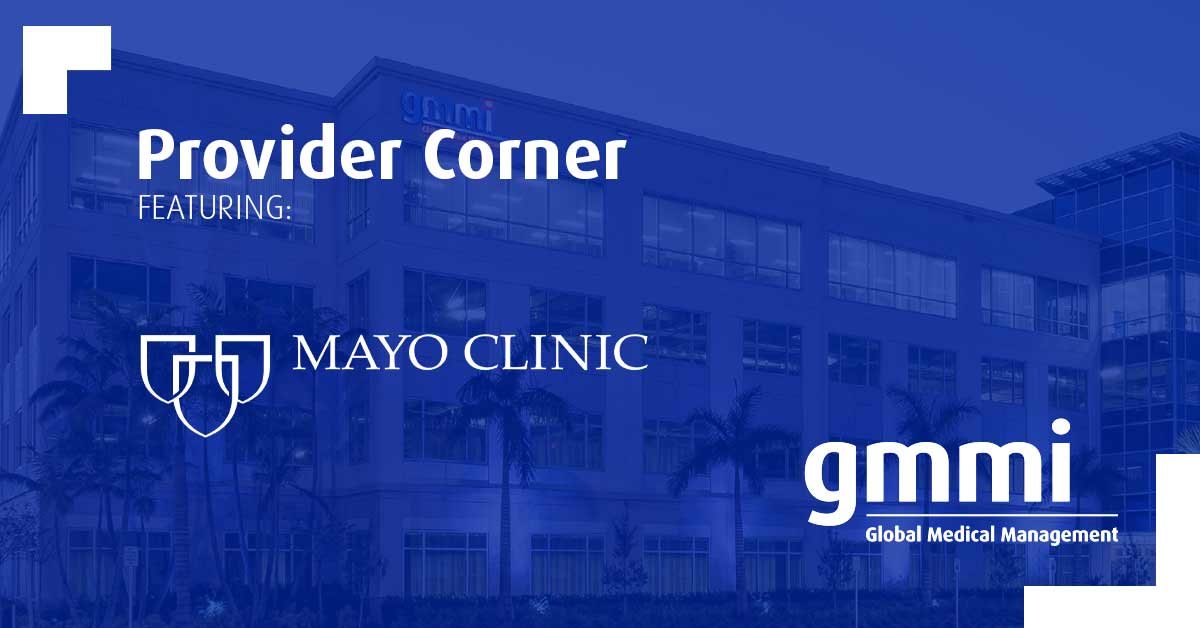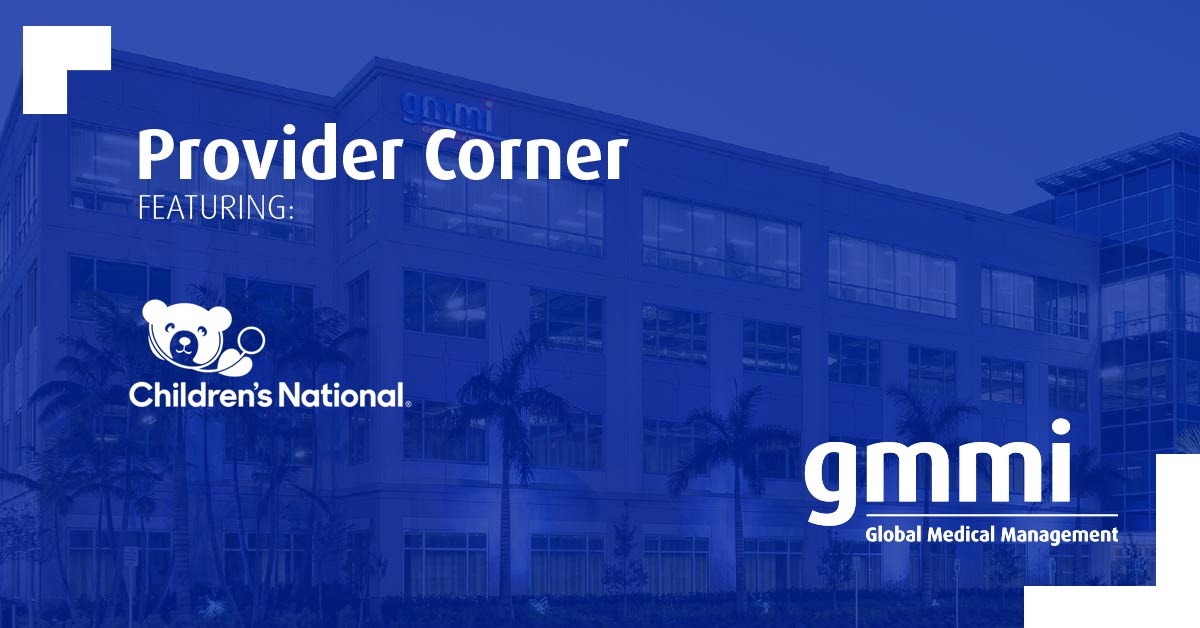
Provider Corner
FEATURING:


New Mayo Clinic option gives patient comforts of home while recovering from surgery
ROCHESTER, Minn. — Jim Nemecek was feeling fine last autumn. He had healed well from a 2020 spine surgery at Mayo Clinic called a diskectomy, and the active 69-year-old from the Atlanta area was doing what he loves best: playing tennis.
After serving the ball, he felt a familiar sensation. He had ruptured a disk in his back again. Jim called his surgeon to let him know what happened.
Mayo Clinic neurosurgeon Mohamad Bydon, M.D., specializes in minimally invasive approaches to complex spine surgery and performed Jim’s original diskectomy in 2020 when Jim was experiencing pain and weakness in his leg. This time, Dr. Bydon recommended nonsurgical treatments to start.
“After Mr. Nemecek came to see me again that fall, we began with physical therapy and injections, which we coordinated for him close to his home in Georgia,” Dr. Bydon says. “When the non-operative measures were no longer effective, we proceeded with surgery.”
Jim’s surgery was a lumbar revision decompression and revision diskectomy. It was called a “revision” because it was the second time the surgery was performed, which can mean additional risk.
“Any type of revision surgery can be complex because of scar tissue, which can lead to complications,” Dr. Bydon says. “Typically, we recommend these patients stay in the hospital after surgery for monitoring.”
There was another option that would let Jim recover outside the hospital, giving him some of the comforts of home but immediate access to his care team if needed. Mayo Clinic had just started a program in Rochester called Monitoring at Charter House, a collaboration with Mayo Clinic Hospital — Rochester and Mayo Clinic Advanced Care at Home, which is part of the Mayo Clinic Center for Digital Health.
The new program allows physicians to arrange for U.S. and international patients who meet criteria to recover overnight at Charter House after a procedure rather than staying in the hospital. Charter House guest apartments are outfitted with remote monitoring equipment and patients are connected to a care team around the clock. Dr. Bydon decided monitoring at Charter House would be a good option for Jim.
“Jim is an active person, and given that we did a revision surgery, we wanted to watch him closely to ensure a strong post-operative recovery,” Dr. Bydon says. “The program provides a safety net and delivers the right amount of care for the right patients.”
Jim was intrigued by the concept.
“My biggest question was ‘how do I get there?’” he jokes. “It was the first time I ever got to ride in an ambulance.”
Following Jim's surgery and recovery, he was taken by ambulance to Charter House. The team showed Jim the monitoring equipment and how he could take his own vital signs. A nurse then pressed a button on the equipment and was immediately connected by video call to the Advanced Care at Home command center at Mayo Clinic in Florida.
“I felt very secure knowing that if something was wrong, I could get help with the press of a button,” Jim says. “Plus, I look out my window and there’s Mayo Clinic within 15 yards of my apartment.”
Jim didn't need help during this one-night stay — but he did accidentally push the button once.
“I think I sat on it or something, and suddenly there they were on the screen, asking me if there was a problem,” he says. “Knowing I was being monitored was a great security blanket.”
Post-procedure monitoring at Charter House frees hospital beds for sicker patients or those with complex needs who require all of the capabilities a hospital provides, and it fills a gap for a certain type of patient, says Dr. Bydon, who is executive medical director of academic affairs and the Europe, Middle East, India and Africa regions for Mayo Clinic and holds the Charles B. and Ann L. Johnson Professorship in Neurosurgery.
“It provides a solution for those patients who are too sick to go home after surgery but not so sick they need to be in the hospital,” he says. “With this program, we are able to offer the right care in the right setting for the right patient. Because the patient is more comfortable, it helps speed recovery.”
Jim says the apartment was beautiful and nicer than a hotel room. He found that he could sleep better than in the hospital and had more room to move around as his care team recommended.
“It was like the best parts of staying in the hospital without the worst parts of staying at the hospital,” he says.
The same concept is established at Mayo Clinic in Florida, where it is called Care Hotel: Patients recover overnight in a nearby hotel, also with access to the care team via remote monitoring equipment.
About Mayo Clinic
Mayo Clinic is a nonprofit organization committed to innovation in clinical practice, education and research, and providing compassion, expertise and answers to everyone who needs healing. Visit the Mayo Clinic News Network for additional Mayo Clinic news.
Media contact:
- Susan Barber-Lindquist, Mayo Clinic Public Affairs, newsbureau@mayo.edu
Provider Corner
Subscribe to our Newsletter
GMMI is a leading URAC accredited, ISO 9001:2015 & ISO/IEC 27001:2013 certified provider of cost containment and medical risk management solutions.
We are Passionate for People.
Focused on Client Results.
Driven by Legendary Service.
Our SOlutions
Contact Us
Phone Number: +1 (954) 370-6404
Toll-Free (in the U.S. & Canada):
800-682-6065
Email: info@gmmi.com
2024 © All Rights Reserved.
Code of Conduct | GDPR | PIPEDA | Terms of Use | Privacy Policy | California Privacy Notice | Personal Data Access Form | Responsible Data Leak Disclosure Form

